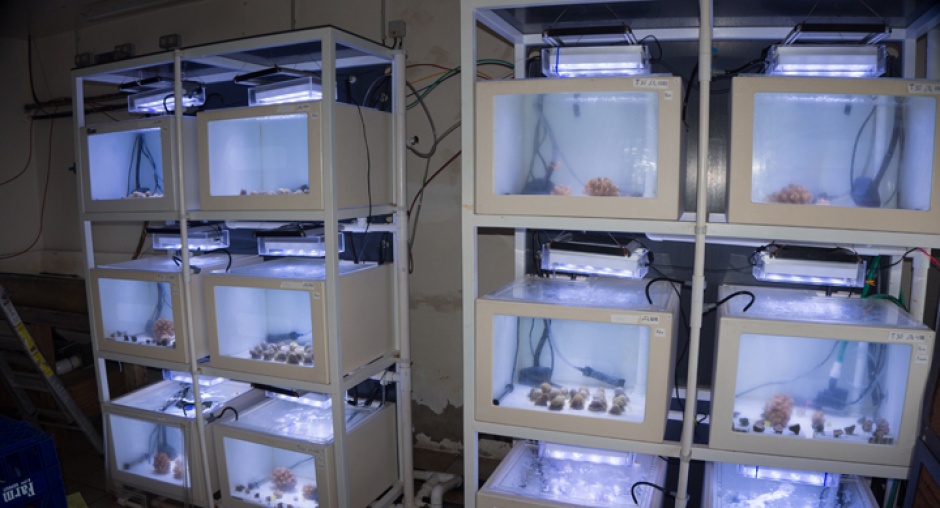
Both natural and local-scale anthropogenic disturbances affecting present-day coral reefs occur against a backdrop of intensifying global stressors created by rising temperature and declining pH of ocean waters. Global climate change (GCC) related rises in sea surface temperature is likely to increase the effects of coral bleaching, and disease outbreaks, and might also alter the frequency and/or intensity of large storms. In addition, ocean acidification (OA) may fundamentally alter net calcification of coral reef communities, and thus jeopardize their functions as massive, wave resistant platforms creating habitats for numerous organisms that promoting biological diversity.
In light of the plethora of distances negatively affecting coral reefs, our research program seeks a better understanding of how forecasted changes will alter community structure and function. We are particularly interested in better understanding how these effects will influence community resilience, that is, the capacity for a community to reassemble and regrow following disturbances. Our research in this theme is guided by two focal questions:
-
What attributes and adaptive capacities of key ecological groups (e.g., corals, and crustose coralline algae) will shape their responses to future disturbances including those attributed to GCC and OA?
-
How will future environmental conditions interact with altered community composition to affect ecosystem function?



